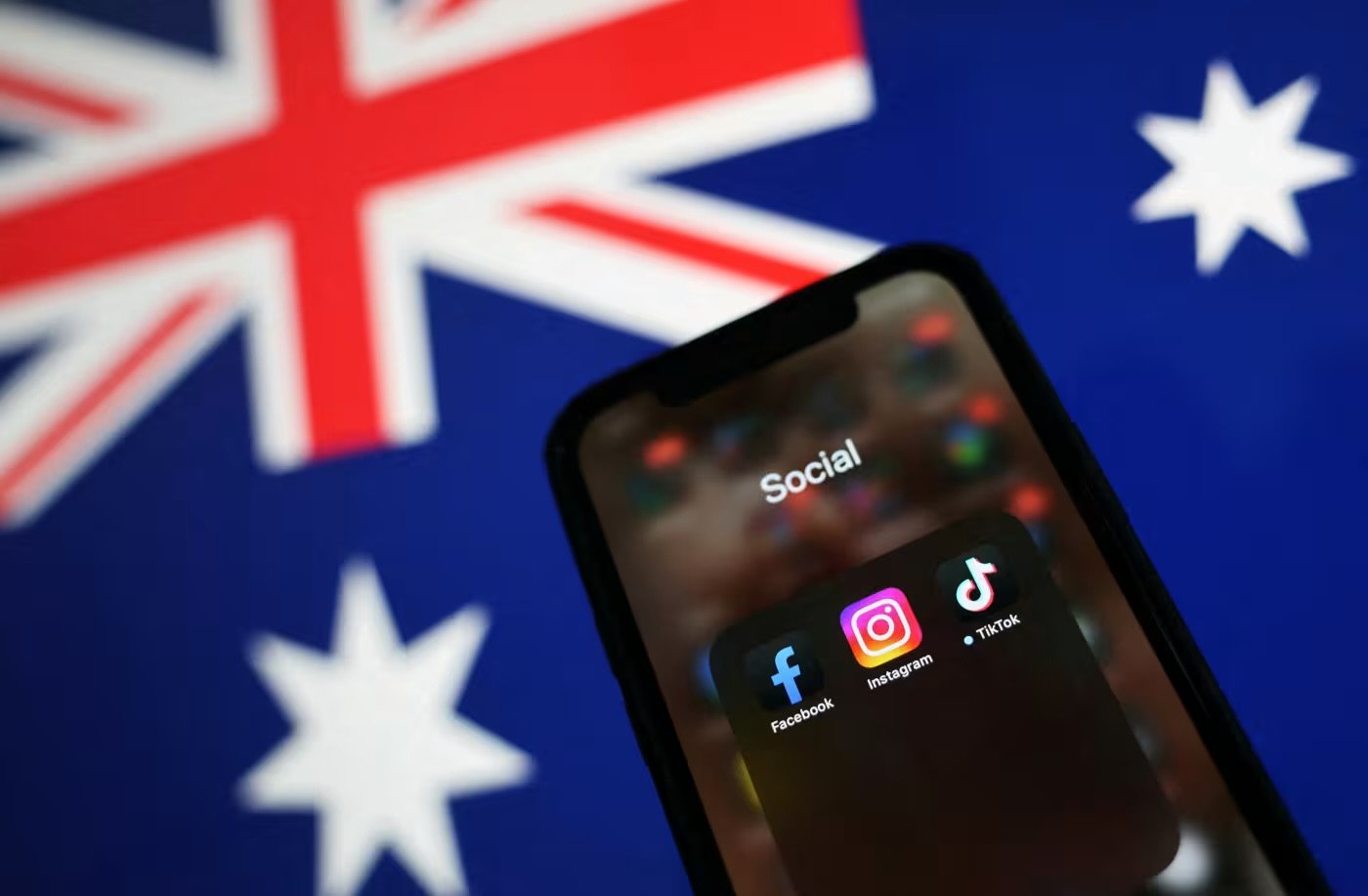Australia Moves Forward With Social Media Ban
Photo Credit: Edgar Su/Reuters via WSJ
In late November, Australia's lower house of parliament moved to pass a bill banning social media for youth under 16. The punishment and responsibility to uphold the law would be placed entirely upon the apps, not the teenage users.
When the ban is fully implemented, social media platforms such as TikTok, X (formerly Twitter), Facebook, Instagram, and Snapchat will be liable for fines up to $32 million USD if they are found to have people under 16 on their platforms. YouTube, however, will not be not included in the ban because it is considered to be educational.
The ban won’t be set into action or another 12 months while Australia waits for the age-assurance technology to be tested and deemed reliable. The idea behind this ban is to create guardrails that are stronger than just a button to click saying that you are over 16. Instead, the age-verfiication process may use biometric data or government identification.
“The core focus of this legislation is simple: It demands that social media companies take reasonable steps to identify and remove underage users from their platforms,” Senator Maria Kovacic told the Senate.
Legislators are moving quickly to put the bill in place. The hope is that with this ban, the government will be protecting teenagers from the negative sides of social media. Social media usage has been linked to attention problems, feelings of exclusion, sexual harassment, cyberbullying, and lack of sleep, which greatly affects younger individuals who need proper sleep for physical development. It also exposes impressionable young minds to harmful stereotypes, which can lead to the glorification of unhealthy societal expectations and a need for online validation.
However, not everybody supports the bill. According to Reuters, in a submission of opinion to the Australian government, Google and Meta—the parent companies of Facebook and Instagram—called the bill “inconsistent and ineffective” in its present form.
Others also agreed that the bill was not given enough thought and was rushed. “I thought this was a good idea,” said Senator Jacqui Lambie to the senate in opposition to the bill, “A lot of people out there thought it was a good idea until we looked at the detail and—let’s be honest—there is no detail.”
Another concern brought up about the bill is that removing access to social media could rid vulnerable children of a social safety net. In a joint statement, Australian Human Rights Commissioner Loraine Finlay and National Children’s Commissioner Anne Hollands accused the bill of being rushed through parliament and being a “blunt instrument” that fails to recognize that social media can have positive benefits.
They continued on to describe how a lot of teenagers are able to cfind communities online where they feel supported to be themselves. As a result, they argued that this ban may isolate children, driving them to the dark web, and making them more reluctant to report harms encountered online if they are below the age-limit.
Finlay and Hollands also accused the government of “masking” problems caused by social media, rather than treating the underlying causes to make social media platforms safer for all. Additionally, they also called plans to verify biometric data and government-issed identification a “risky gamble” for potential privacy issues.
Amnesty International, a global human rights organization, warned that this bill could take away support systems for vulnerable kids and potentially violate rights to privacy.
Independent lawmaker Zoe Danial also criticized the bill, telling Parliament that, “the true object of this legislation is not to make social media safe by design, but to make parents and voters feel like the government is doing something about it.”
While it is controversial, the bill does have a majority of the Australian population’s support. The Senate passed the bill 34 votes to 19, while the House of Representatives passed the legislation with 102 votes to 13. A YouGov survey also found that 77 per cent of Australians support the under-16 social media bill.

